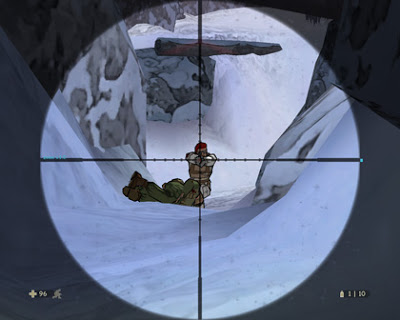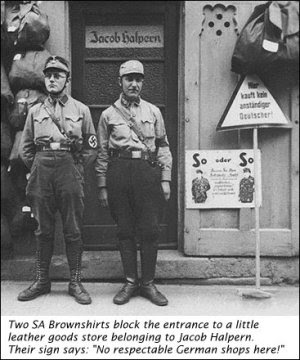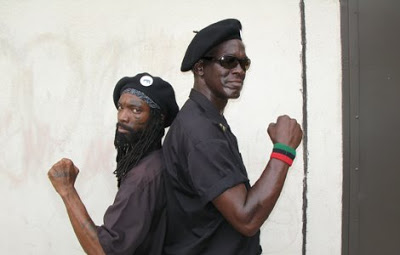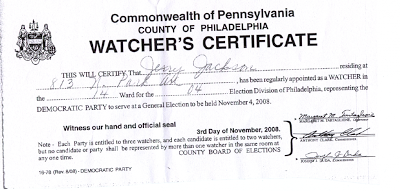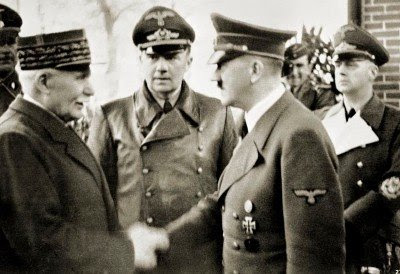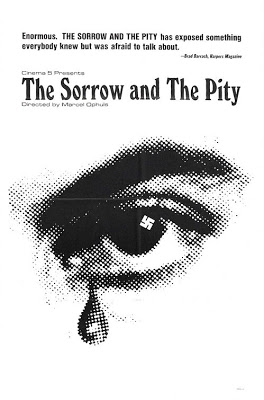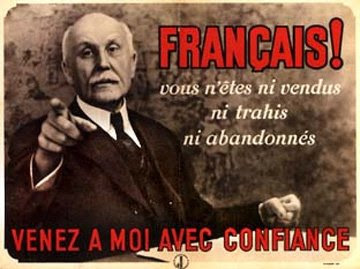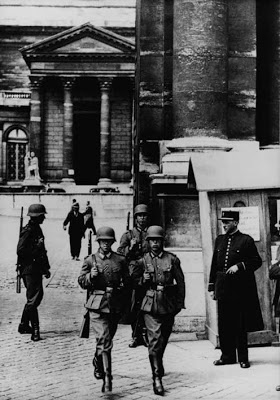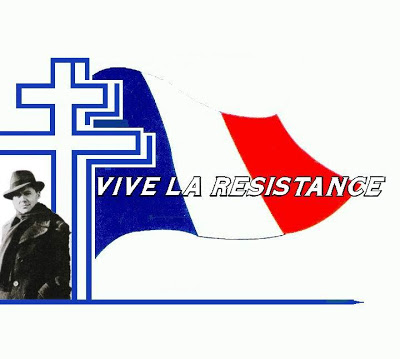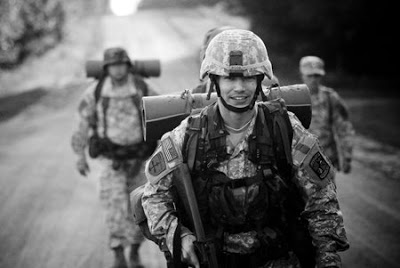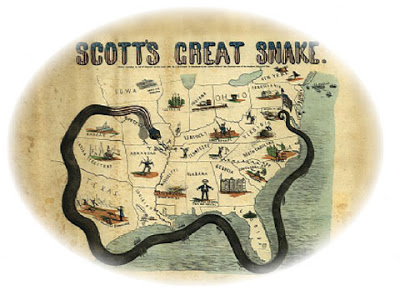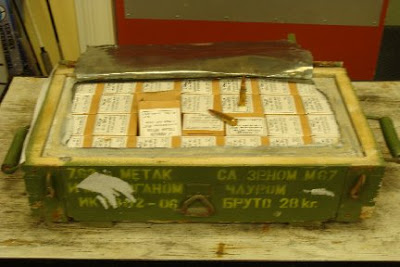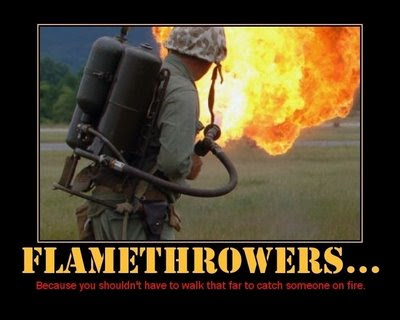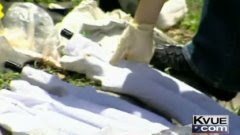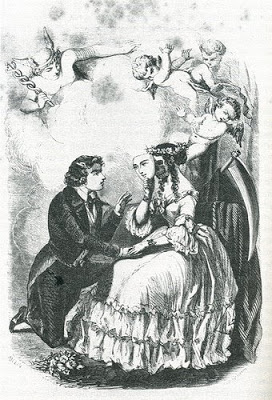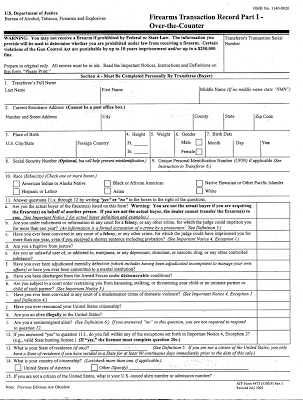 Form 4473Folks,
Form 4473Folks,
Thirteen years ago, I wrote the piece below suggesting that 4473 parties might be an effective tactic in blunting federal registration/confiscation schemes. Like all of my non-fiction essays, it was written for a specific purpose to address a specific concern. Today, I would write this a bit differerently. In fact, that's exactly what I'm doing with Absolved, Resolved and Dissolved.
One thing that has changed is the technology. As Anonymous wrote below in response to my post ""This is Bill Buppert. If you are reading this, YOU are the Resistance.":
Since taking, destroying or disrupting the enemy's assets are so important, it makes me wonder whether the most important weapon a resister has is his rifle, or his computer. The tyrants run the government electronically. A bug in the system can do alot more damage than many rifles.
Yes, exactly. Anyway, enjoy, but remember I wrote this in 1996. Things are different now. They are, in fact, more dangerous.
Mike
IIIOnce Upon a Tea Party....By Mike Vanderboegh
The following tale is fiction. Nothing quite so far-fetched could ever happen in our country, I'm sure.
Once Upon a Tea Party.....
Transcript, Court Ordered Wiretap, (205) 555-1234, 2103hrs, 11 February, 1999:
"Jim, it's me."
"Yeah."
"You heard the news."
"Yeah." (Pause.) "When?"
"Tomorrow, just like we discussed. We all know the drill, no sweat, nobody gets ....."
"Yeah, O.K." (Pauses.) "I'm goin' fishin tomorrow. Will you feed my dog? I won't be back till late. I'll leave my keys under the mat."
"Sure thing, Jim."
"See you later."
"Yeah."
(Call ends.)
Headline, USA Today, 12 February, 1999: "Assault Gun Confiscation Act Passes, Clinton Orders Dealers To Provide Records. Gun Owners Promise Massive Disobedience." (Picture Caption: "Come and get mine yourself, Clinton, or better yet, send Charlie Schumer." says Mike Vanderboegh, Alabama militiaman, brandishing his semiautomatic rifle.)
"The Assault Weapon Confiscation Act was a foregone conclusion after the Democrats regained control of the House and Senate in the aftermath of the October, 1998 chemical warfare attack in Detroit. That terrorist massacre of over 7,000 inner city residents was blamed on the Michigan Militia by the FBI's new director, James Kallstrom. Unfortunately, all of the alleged militia perpretrators were killed in an attempt to arrest them by members of the U.S. military's Special Operations Command, so definitive blame may never be assigned for the massacre. The political consequences of the attack, however, were clear from the day the bodies of the Michigan militiamen were hauled from the burnt-out raid site. Militias would be outlawed, assault weapons would be banned, if the Democrats were able to use the issue to regain control of Congress. They were, and semiautomatic so-called "assault weapons" are now forfeit. Gun owners have 60 days to turn them into their local police or county sheriff. Simple possession of a previously legal weapon will be punishable by ten years in prison and a $200,000 fine. Use of any weapon to resist the enforcement of the act is punishable by death." -- USA Today, 12 February, 1999, Page 2a.
The Battle of Charlie's Gun Rack
The door to "Charlie's Gun Rack" swung open, and two men in cheap suits walked up to the sales desk and flashed their badges. "ATF", one announced. "Assholes"
muttered one of the customers in a low enough voice to make it's source legally indistinguishable. The larger of the two agents glared in the general direction of the insult.
"You know why we're here, Charlie," said the other to the long, lanky Texan who had his legs propped up on the desk.
"No, Ah don't know why a couple of cosmopolitan sophisticates such as yerselves would take a chance on comin' all the way out here to "Fort Stinkin' Desert". Why don't y'all tell me and break my suspense?"
That got a belly laugh from the front of the store, but the agents were unamused.
"We're here for your records, Charlie. Your logs and all the completed Brady's and 4473's you've got here and in storage. You know the law."
"Yer law, guncop. Clinton's law, not constitutional law," said Charlie bitterly.
"That's for the Supreme Court to decide, Charlie."
"Yeah, and by the time the case gets there, ya'll have all the records and all the guns. Probably have all the records on computer and all the guns ground up by then, won't ya?"
"That's not my concern, Charlie. Right now I've got the job of enforcing the law and picking up your records and I hope you'll cooperate with me, or I'll be forced to take them and you to Dallas," replied the agent.
Charlie smiled and nodded. Unnoticed by the agents, a customer slipped out of the front door and walked down the street toward the sheriff's office. Once out of view
of the gunstore window, he began to run.
"Waalll," drawled Charlie, "Ya'll gonna find that a little difficult to accomplish."
"Oh, yeah," said the bigger agent in what he imagined was an ominous voice, "How's that?"
"Well first off," said Charlie, "somebody broke in here last night and took every one of my records-- Brady's, 4473's, the logs, my gunsmithin' register, everythin'."
"Bullshit!" said the big agent.
"Naw," said Charlie, "ain't no bullshit, it's the smokin' hot Gospel truth. And you know what? I went down to my storage shed to check on the old ones I had there and they're all gone too. To tell you the truth, I thought it was you chickenshits that'd come and done it in the middle of the night cause ya'll didn't have the balls to come and get 'em in the daylight, but I see now I was mistaken."
The gunstore erupted in laughter, and the big agent's face which was already red, grew a darker shade of purple.
"That's it, you sonofabitch," snarled the big agent, starting to move around the desk, "you're coming with us. Conspiracy to violate the Act."
"I wouldn't do that if I were you," boomed out a voice from the doorway. The agent stopped and turned, and Charlie eased his grip on the ParaOrdnance .45 pistol he had under his chair, hidden from the agent's view.
Sheriff Bob Tolliver advanced into the store, so the ATF agents could plainly see his uniform, his badge and his open-holstered sidearm, which he happened to have his hand resting on.
"Look boys," Tolliver said amiably to the ATF men, "Charlie here reported his records stolen to me first thing this morning. He's filed an official report which I'll be glad to give you a copy of to take back to your superiors so's they know you didn't come all the way out here for nothin'."
Somebody laughed, and the Sheriff continued, "Now as far as takin' Charlie back with you, I don't mind if he wants to go voluntarily to answer any questions you boys have." Turning on Charlie, he asked, "You want to go with 'em Charlie?"
"Hell no," Charlie replied, "I got things to do."
"Well, that's it then," said Tolliver, "If you boys want to know anything about the theft other than what's in the report you'd better ask him now."
"Look you Barney Fife....." the big agent spluttered. "Shut up, Dick!" ordered the other ATF man. Turning to Charlie, the agent gamely asked, "OK, Charlie, do you have any idea what the..."burglars" looked like?"
Charlie thought for a second and said, "You know there was one guy hanging around the shop yesterday that didn't quite fit in... he had a buddy too. Never seen either of 'em before."
Knowing he was stupid for asking, the ATF man asked, "Well, what did they look like?"
"Well, the one guy looked like a deadringer of the sketch of John Doe Number Two and his buddy was seven foot tall, had green skin, yaller hair and a earring in his nose. Oh, yeah, the tall one was wearing an "Al Gore in 2000" teeshirt. I had 'em figured for ATF snitches. You know 'em?" Charlie grinned.
The shop erupted in hoots and laughter. A deputy entered and handed a piece of paper to Tolliver, saying, "Here's the report, Sheriff."
Tolliver in turn handed it to the smaller, older and wiser ATF man. "Well, here's your report. I'm sure ya'll be wantin' to get back to Dallas now. I took the liberty of letting the sheriffs of all the surrounding counties know ya'll were in the area so we can make sure ya'll have a safe trip back. You can thank me later, by phone, when you're safely back in Dallas. Ya'll have a nice day."
And with that, Sheriff Tolliver turned and left the shop.
"Look," started the big agent to his partner, who cut him off short. "Later, Dick. Can't you read between the lines? Just shut up and follow me."
The ATF men left Charlie's without a word. Behind them, the shop erupted in convivial bedlam.
Out on the street, it took a moment for the agent's eyes to adjust to the bright Texas mid-day sun. Without realizing it, they had stepped out of Charlie's door into the middle of two lines of armed men, facing each other, and the ATF agents. Some were in uniform. Some in work clothes. Beyond the men on the opposite side of the street stood Sheriff Tolliver, his deputies and the town Mayor, as well as representatives of the local press (no photographers, though).
The two lines of men (and some women, the agents noted) formed a corridor from the door of Charlie's shop to their car, parked across, and slightly down, the street.
Every one held a semiautomatic military-style rifle-- the same kind that were banned by the new Act the ATF men had come to enforce. The escort was standing at attention, their rifles held at "present arms", their combat harnesses full of loaded magazines, many with holstered pistols hanging from military belts or shoulder holsters. Some wore kevlar vests and helmets. Each one fixed the ATF men in a steely gaze as the Feds walked quickly, breathlessly, to their car.
The ATF men jumped in their motorpool car, the formation parted, and they "U-turned" and sped out of town, oblivious to the words "GUN GESTAPO" which had been spraypainted in big letters on the trunk lid.
The armed men and women in the street erupted into cheers. Charlie was carried from the gunshop on the shoulders of his customers. Sheriff Tolliver was smiling in relief, but was less enthusiastic. Leaning his head down closer to the mayor's ear, he cautioned, "They'll be back....with friends." Unable to make himself heard over the din, the mayor could only nod in agreement. It wasn't over. It was just starting.
* * * * * * * * * * * * * * * * * * * * * * * * * * * * * * * *
The same day, in another part of the country.......
"Plausible Deniability"
Les Miller always opened up his gunshop at 10:00 am on the button. He usually got to the shop around 7:30, disarmed the alarm, checked the surveillance footage from the night before on fast forward for anything unusual while the coffee was brewing, and then sat down to peruse the morning paper and the firearms industry publications that had come in the mail the previous day.
The headlines this morning were full of the "Assault Weapons Confiscation Act" passed the day before and signed by the President in a midnight ceremony in the White House with Charlie Schumer and the usual gun-grabbing politician/suspects beaming with approval. Les didn't want to even read the paper this day. He knew this act would not be obeyed by a number of his customers. He knew that with just an incident here or there, a civil war could start, which was something the politicians seemed not to know or care about. Troubled as he was, Les paid little attention to the stepside van pulled up in front of the out-of-business shop next to his.
Just as he worked the lock with his key, his best friend Walter Thurston pulled up in a beat-up Chevy Blazer. At first startled enough to reach back for his pistol, Les relaxed when he recognized his old army buddy. "Walter, what the heck brings you slumming down here in this part of town so early in the morning?"
He could tell instantly his friend was as troubled as he was when Walter replied, "Bad times, old friend."
"Well, we've seen those before you know......Come on in and I'll brew us up some coffee. And then we can talk about bad times coming and good times gone....wait here for a sec while I disarm the alarm."
The alarm off, the two men entered the store. Les tossed his keys to Walter, "Lock the door back will you, and I'll go put the coffee on." Walter stood at the door, fumbled with the keys, then turned to go to the back of the store without relocking the door.
"Les," he said loudly over the sound of the water filling the pot, "I came by because the ATF is going to be here this morning to confiscate your 4473's."
Surprised, Les stuck his head out of the bathroom door, "Oh yeah, how do you know?"
"Well I've got a buddy down at the Federal Building and he let me know last night that they're going to be moving fast to secure those records before they can be destroyed by any militia people."
"Well, I guess that makes sense from their point of view but I'll be damned if I'd like to seem them do it. There's a lot of my friends names on those things. Yours too."
"Yeah I know," said Walter, "That's why I'm here."
"You want me to pull yours out, Walter? I'd have to lose the logs and the Brady paperwork too. I'd go to jail. I'd like to help you but I've got a family too, you know."
"I know Les," sighed Walter, "That's why I'm here. To give you what the bureaucrats call "plausible deniability."
"Huh?" said Les, pouring the water into the coffeemaker. Les turned and his old friend stood there holding a Keltec P11 9mm pocket pistol pointed right at him.
"Now you don't want to go to jail, and me and my other friends don't want to either. So we've come to get your records, and we'll leave you here for the ATF to find, hale, hearty, in one piece and totally without anything the ATF is interested in. And with "plausible deniability."
"Tyrannies, and the bureaucracies that serve them, work on paperwork-- either paper or electronic in this day and age. Destroy the paper (or the computer files) and you destroy the ability of the tyranny to exercise its plans. That's what we intend to do today, now, in your shop. Were gonna have a modern day tea party. A "4473 party" if you will. Nobody gets hurt, no real property gets stolen. As far as I'm concerned, no crime gets committed. We might just do a little bit to stop an even greater crime."
"I see," said Les. He might have fought anyone else. Even though he hated the new law and hated Clinton, come to that. No one would take what was his, not even paperwork. But Walter was his best friend. They grew up together, fought over the same girls in high school. In Vietnam each had saved the other so often they had quit keeping count. And after it was over they had come back to their home town with a shared fervent desire never to go anywhere else people would shoot at them. Now it seemed, the shooting might start again. Here. Now. In their town. He still had the impulse to draw his .45. He overrode it.
"OK," said Les as turned his right side to Walter, offering his .45 for plucking, "Just make it good, and make it fast."
Relieving Les of his sidearm, Walter motioned him to his chair. "Les, I'm real sorry about this. But it's the only way I can see to get the job done and protect you. I'm going to tie you to your chair with plastic flexties and tape your mouth shut. I've got to slug you at least once and draw some blood so the Feds will believe it was involuntary on your part. I've got a nice fresh pillow case to put over your head so you won't see the guys who haul off your records. With luck you'll be rescued by the news media or the local cops before the Feds get here so you'll have more witnesses. One last thing. We know about the records in the EZ-Store locker and we cleaned those out last night. Are there any more records other than the ones I once saw in your storeroom back there?"
Les shook his head, "No, that's it."
"OK, I hope you forget who it was that slugged you, but I'm willing to take the chance even if you're not. This has got to be done, Les. And I'm sorry as hell it's got to be me that does it to you."
And with that said, Walter slugged his best friend with his own pistol, splitting scalp, pulling hair and spilling blood.
In a moment, his unconscious friend trussed securely, Walter pulled a walkietalkie from his pocket and clicked twice.
The stepvan erupted as men painted as Mohawk Indians bolted from every door and rushed into the shop. Across the street, a TV camera crew hastily summoned for the event took pictures while their militia contact verified that no closeups were being taken. The first Mohawk into the shop tossed Walter an Indian headress and a costume mask.
When the last of the records was loaded into the stepvan, two other vans pulled up, loaded Mohawks and sped away in opposite directions. The last shot the camera crew got was of Walter, taking a final look around. The militia media man gave them permission to do a closeup shot of Walter's masked face. When he got the focus, the cameraman started to laugh uncontrollably. The leader of the raid had chosen a Bill Clinton mask to wear under his askew Indian warbonnet.
By the time the footage was being aired on the NBC Nightly News, the last of the records was going into an impromtu bonfire in a quarry outside town. Even the ATF was forced to admit that Les seemed an innocent victim of what they called "militia terrorists." He couldn't quite remember exactly who it was that had gotten the drop on him that morning. In the final analysis, the ATF had far more trouble elsewhere than to worry about what Les Miller knew, or didn't know.
**************************************************
"Charlie Schumer's Last Stand"
HEADLINES: USA TODAY, 12 February - 21 March 1999:
"Gunowners Engage In Massive Civil Disobedience Nationwide",
"4473 Parties" Staged By Gun "Nuts" Dressed as Mohawk Indians.
Two ATF Agents in Raid Party Killed By Sheriff Deputies In New Mexico Standoff.
Surviving Agents Disarmed & Returned To Federal Authorities.
National Guard Units Refusing Federal Orders In Present Crisis.
Governors Seek Immediate Relief From Supreme Court on New Gun Ban.
Supreme Court Justices Antonin Scalia and Clarence Thomas Killed In Mysterious Car Crash. Court Business Suspended Until Clinton Can Appoint Successors.
The 4473: What Is It? Why Is It An Issue?
ATF, DOJ COMPUTERS ATTACKED BY VIRUS & EMP ATTACK.
Militia Hackers Destroy Gun Registration Databases
ATF WAREHOUSE BURNS IN MASSIVE RECORDS FIRE.
Two Militiamen Killed, Three Captured.
Former Federal Informant Says Detroit Gas Attack a "Sting Gone Bad"
Republicans Demand Investigation.
Was Detroit the Democrats "October Surprise?"
AT THE BRINK OF CIVIL WAR, CLINTON BLINKS
GUN BAN TO BE REVERSED, SAYS CLINTON
Senator Charles Schumer Implicated In Detroit Gas Attack
Phone Records Of Dead Informant Show Many Contacts With Schumer
JOINT CHIEFS OF STAFF MEET WITH CLINTON
RUMORS OF IMPENDING COUP SWIRLING AROUND WASHINGTON
Senator Charles Schumer Found Dead Of Apparent "Self-Inflicted Gunshot Wound"
CLINTON RESIGNS AS PRESIDENT, AL GORE RESIGNS AS VICE PRESIDENT. HOUSE SPEAKER DICK GEPHARDT TO ASSUME PRESIDENCY.
*********************************************************
People's Tribunal Exhibit #A-213, U.S. Vs. Vanderboegh, et al. 1999 (Defendants charged with Treason, Sedition, Conspiracy To Subvert the National Sporting Firearm Protection & Assault Weapon Confiscation Act of 1999.)**
**Vanderboegh, an Alabama militia leader, was convicted with four of his co-conspirators of all charges in a "show trial" in the middle of the Gun Ban Crisis. Vanderboegh, his partners in crime and 428 other political prisoners were freed during a guerrilla attack on the Talladega Federal Prison complex, 19 March, 1999. All were subsequently pardoned by order of President Gephardt. Vanderboegh's current whereabouts are unknown.
EMAIL MESSAGE RETRIEVED FROM PARTIALLY DESTROYED COMPUTER DISC RECOVERED IN RAID BY FBI, BIRMINGAHM, ALA., 21 FEBRUARY 1999.
